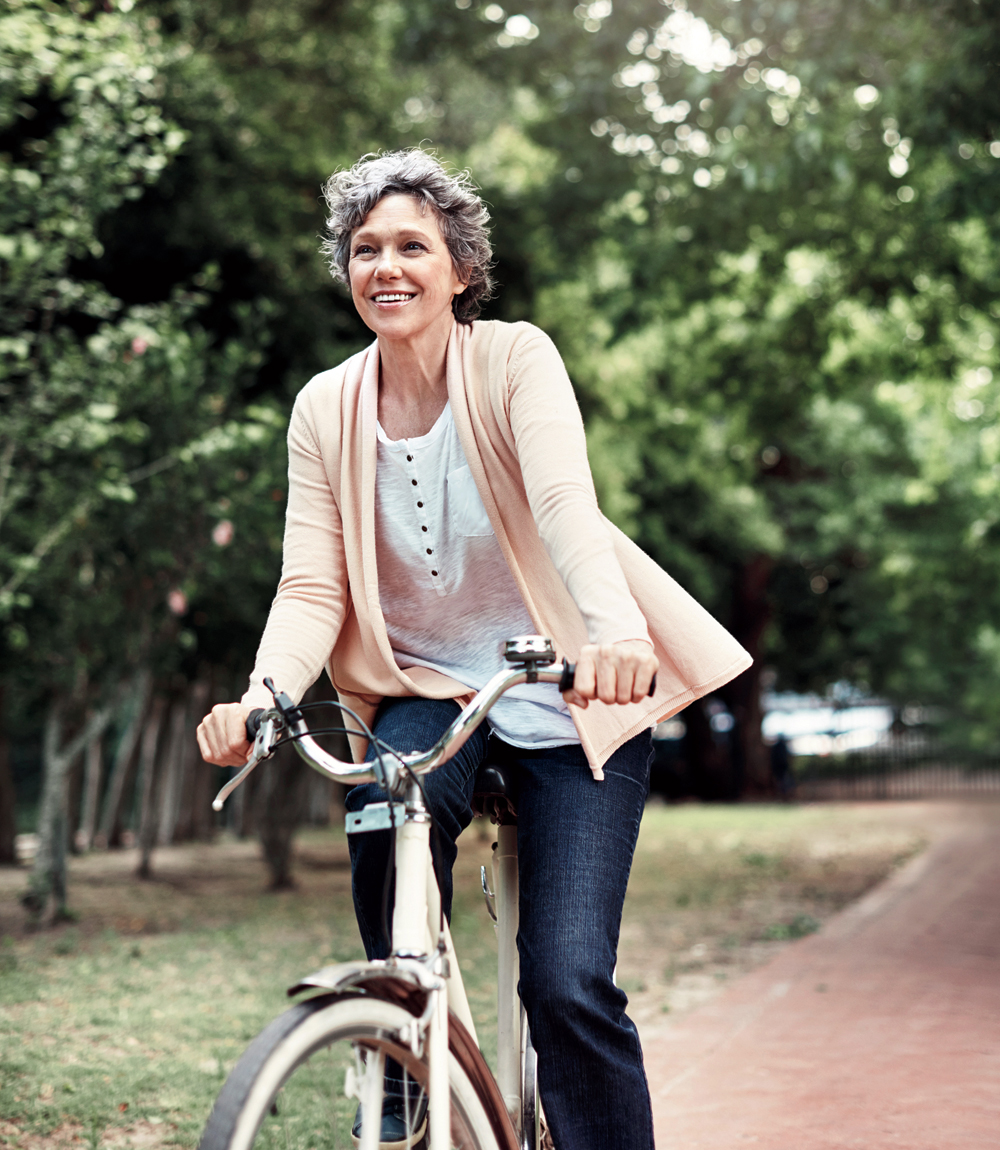15 February 2022
ISU study shows exercise improves heart and brain health | Todd Magel

“Mental health concerns are on the rise. We need to be able to talk about them and then have options to be able to help improve them.”
“Sitting is sort of a sneaky side effect of many of the behaviors that we do and we don’t necessarily know how much we are doing it. I think becoming more aware of how much we sit and how that might influence our own wellbeing could be really important.”
“Doing things that might not seem like exercise, you know, the “no pain, no gain” approach can actually be really useful, which I think is really cool.”
Dr. Jacob Meyer
25 June 2021
Want a Surprising Business Boost? Start Exercising | Robert Roy Britt

Exercise has powerful short-term benefits that have obvious application in the workplace,” said Jacob Meyer, an expert on the neurobiological effects of exercise and director of the Wellbeing and Exercise Laboratory at Iowa State University.
24 May 2021
How to Create a Mental Health-Focused Workout Plan | Emma Betuel

Focus on activities you enjoy
“To exercise with mental health in mind, don’t worry about choosing one type of exercise over another, said Jacob Meyer, a professor of kinesiology at Iowa State University. Aerobic workouts, like running, have consistently been linked to greater mental health, but they’re not necessarily better than strength training — despite the powerful “runner’s high.”
“So far, research shows that aerobic exercise seems to be similarly effective to resistance exercise for improving mental health — both in the short term and in the long term,” he said.”
28 March 2021
Americans view health, especially weight, differently after one year of COVID-19 | Eleanor Chalstrom

“Jacob Meyer is an assistant professor in Iowa State University’s kinesiology department. Meyer is the director of the Wellbeing and Exercise Laboratory at the university and is currently leading the COVID-19 and Wellbeing Survey, comprised of over 3,000 participants.
“What we saw was a lot of people were expressing they were reducing their exercise potentially because they couldn’t go to their gym or their sports leagues were shut down,” Meyer said. “That ended up resulting in people reporting they were being much less active while sitting, using screens for more time. Those things are certainly associated with less energy expenditure.”
The COVID-19 and Wellbeing Survey research began toward the beginning of the pandemic. Meyer said people report their exercise time, screen time and sitting time. The participants also report the state of their mental health.
“We found that, in particular, people who reduce their exercise, or who increase their screen time, had worse depression, stress, loneliness, et cetera,” Meyer said.”
21 February 2021
Group exercise may be even better for you than solo workouts. Here’s why. | L. Alison Phillips and Jacob Meyer
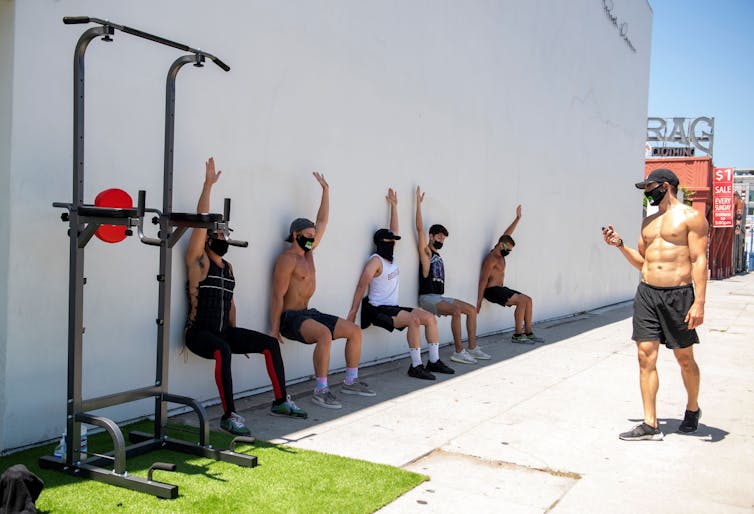
29 December 2020
Group exercise may be even better for you than solo workouts – here’s why | L. Alison Phillips and Jacob Meyer
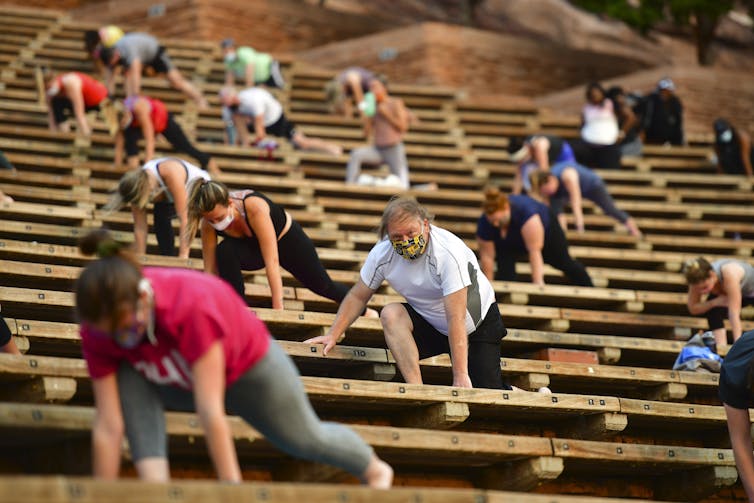
21 August 2020
How Increased Screen Time During Coronavirus Outbreak Is Affecting Your Mental Health | Jordan Smith
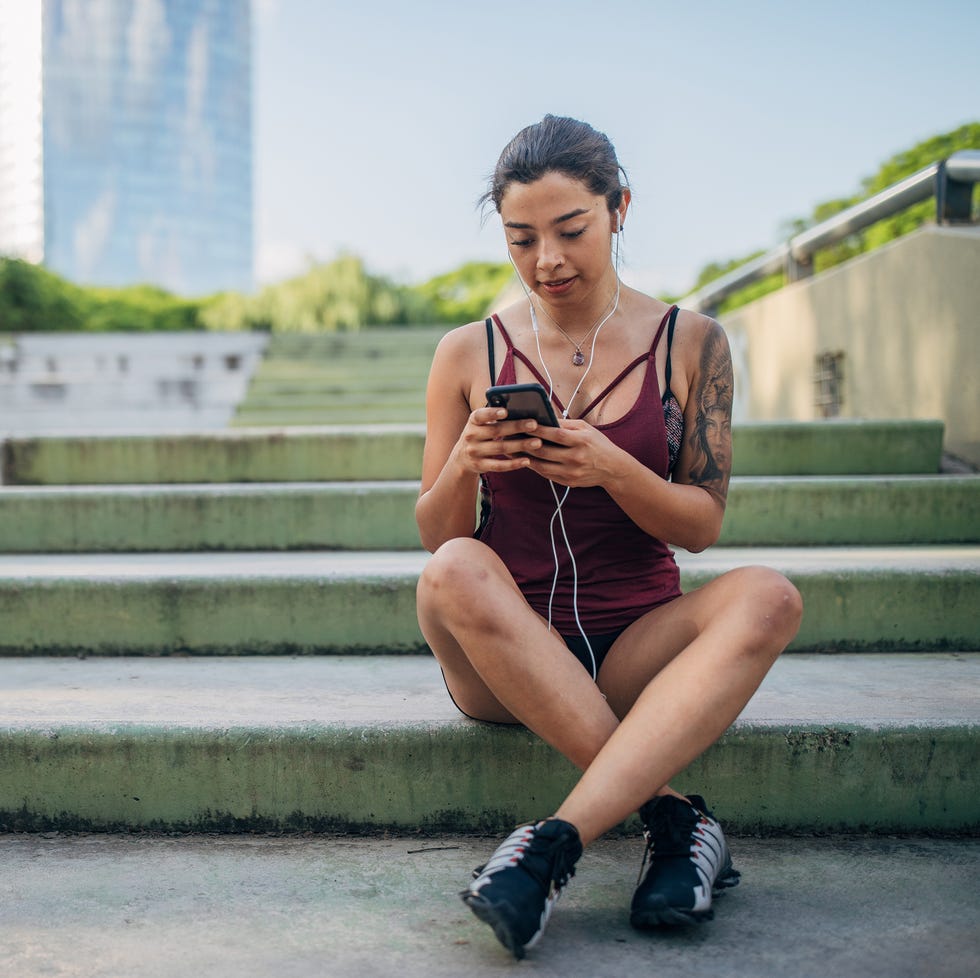
15 July 2020
The Pandemic Is Turning Americans Against the Gym. That Could Be a Good Thing for the Nation’s Health | Jamie Ducharme
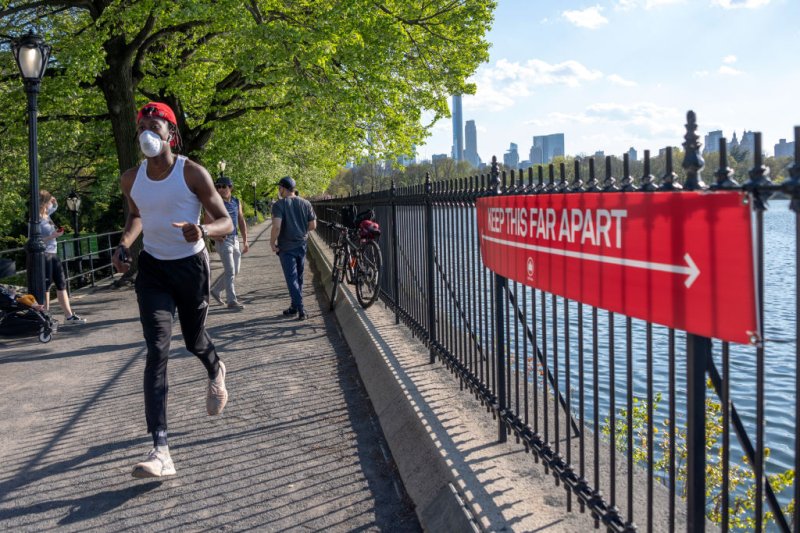
Getty Images—2020 Alexi Rosenfeld
25 June 2020
The way these older amateur athletes are staying fit despite the pandemic offers lessons for all ages | Matt Fuchs

27 May 2020
A Possible Remedy for Pandemic Stress: Exercise | Gretchen Reynolds

12 May 2020
COVID-19 Is Making Americans Even More Sedentary. The Effects Could Be Long-Lasting | Jamie Ducharme

25 February 2020
Being healthy encompasses more than just working out | Jill Olson

03 February 2020
Can CBD Help Fend Off The Winter Blues? | Ken Lawson

08 October 2019
Exercise lowers the risk of depression—and may help treat it, too | Wing Sze Tang
/arc-anglerfish-tgam-prod-tgam.s3.amazonaws.com/public/7Y6TD22GHNEJNCZXY6K35C644M.jpg)
SVETIKD/ISTOCKPHOTO / GETTY IMAGES
24 September 2019
Exercise may boost mood for women with depression. Having a coach may help

13 September 2019
Exercising with a coach might be good for fighting depression | Tibi Puiu

04 September 2019
Why women with depression may benefit from seeing an exercise coach | Gretchen Reynolds

21 August 2019
Exercise May Boost Mood for Women With Depression. Having a Coach May Help. | Gretchen Reynolds

19 August 2019
Alleviating depression: exercise and the endocannabinoid system

14 August 2019
Does the Endocannabinoid System Link Depression and Exercise? | Angie Hunt
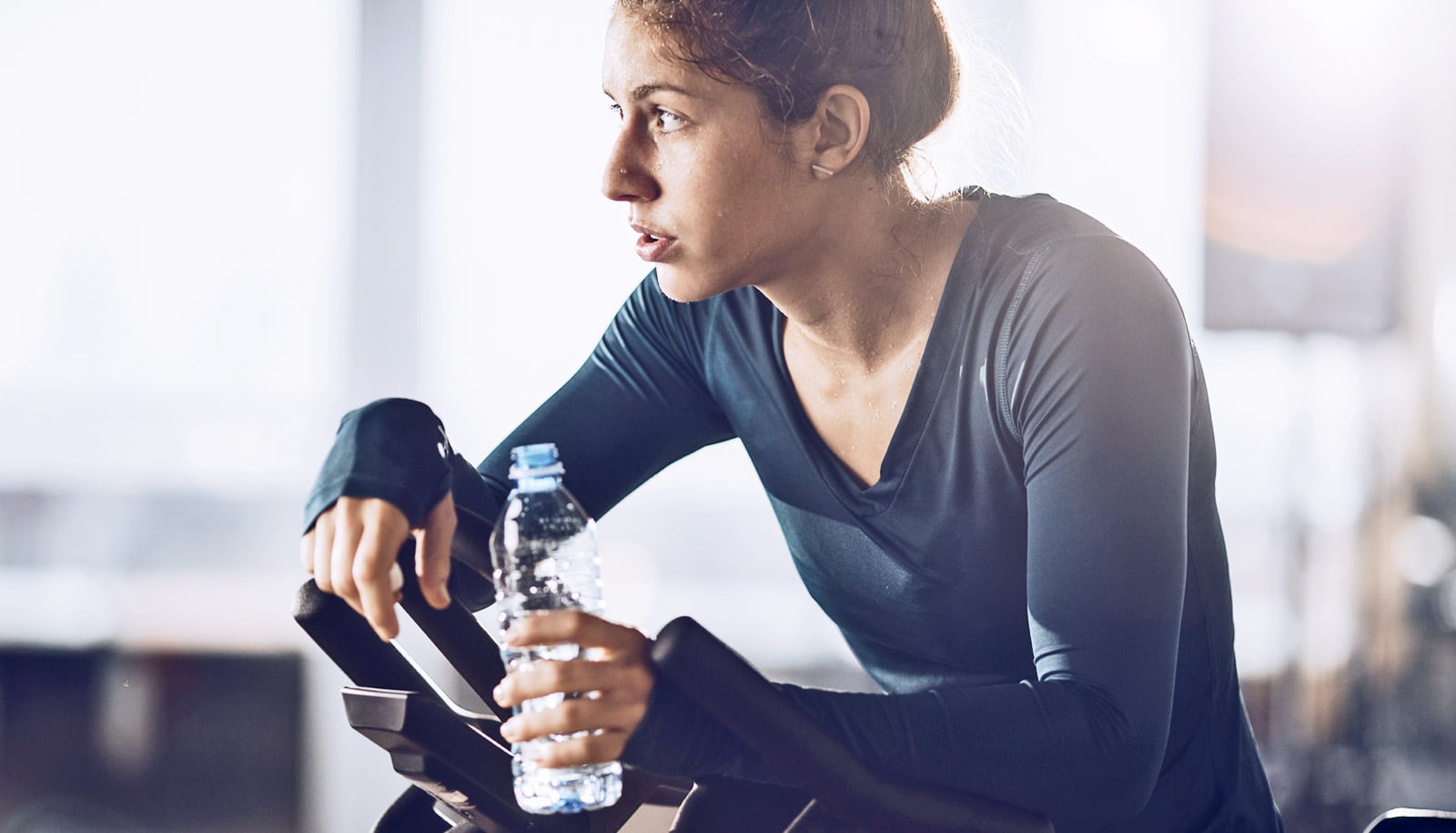
07 November 2018
How Meditation Might Help Your Winter Workouts | Gretchen Reynolds

13 June 2018
Mindfulness Program May Help Increase Physical Activity Levels

02 October 2017
Meyer leverages exercise studies to boost mental, physical health | Kent Davis


